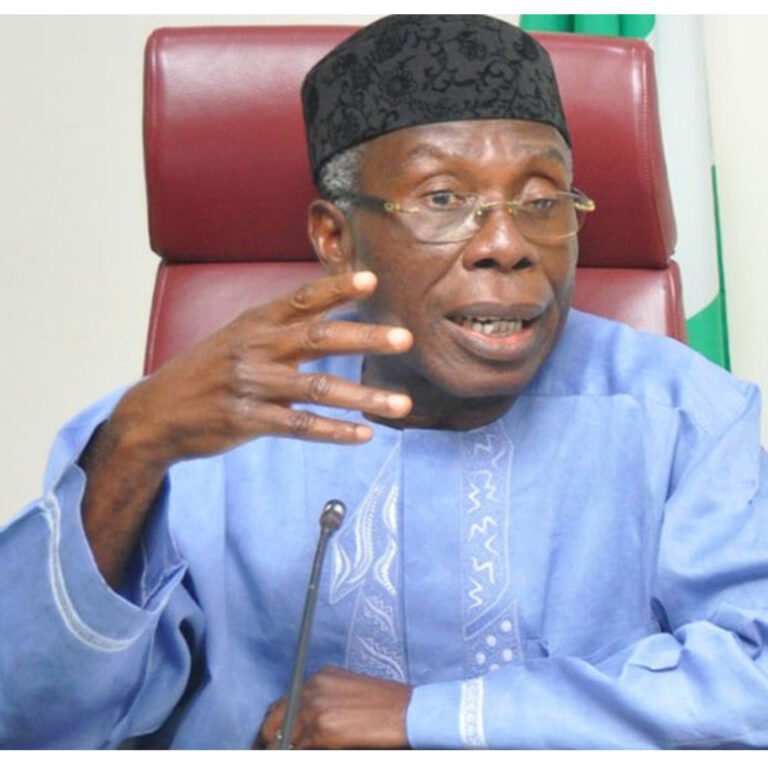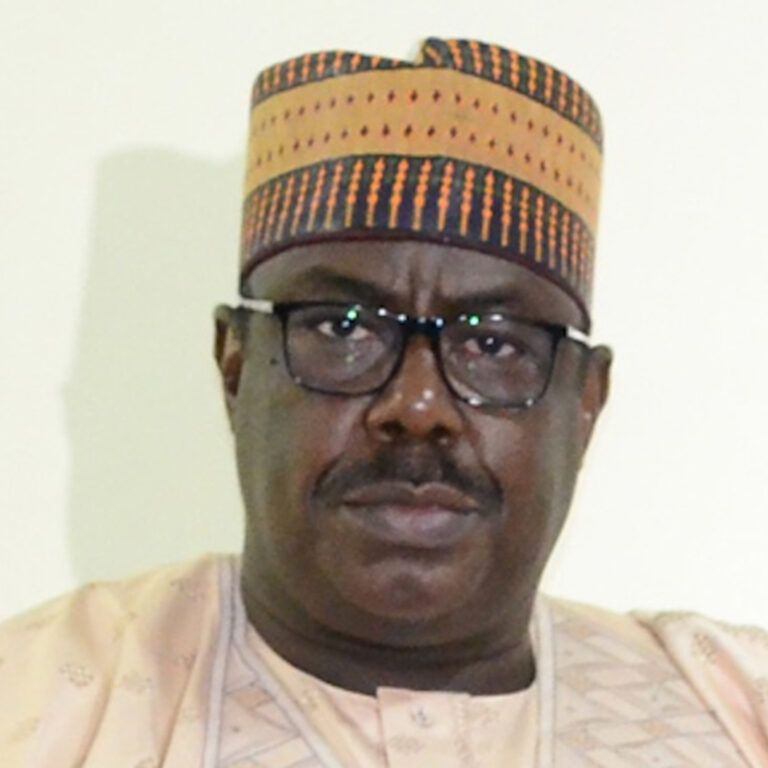NUSACC SUMMITS
The NUSACC organizes seminars, conferences, and periodic business trips and trade missions to Nigeria and the United States.
FOR THE RECORD: Packaging and processing of Nigeria’s products for export markets – a case of personal experiences in the energy sector
BEING a keynote address delivered by Dr. ABC ORJIAKO, Chairman, SEPLAT Energy Plc, at the 1st virtual summit of the Nigeria-USA Chamber of Commerce, Trade and Investment in Cleveland, Ohio, USA, on October 27, 2021.

H.E, Dr. (Mrs.) Uzoma Emenike, Ambassador of the Federal Republic of Nigeria to the United States.
Mr. David Nedrich, President Collaborative Chambers Alliance (CCA)
Alhaji Sani Dangote, President Nigeria Agribusiness Group (NAGB) and Vice-President, Dangote Group
Ms. Su He, ESQ, Executive Director, Greater Cleveland-Chinese Chamber of Commerce.
The CEO, Nigeria-USA Chamber of Commerce Mr. Lee Kareem
Members of the Nigeria-USA Chamber of Commerce,
Gentlemen and ladies of the press,
Distinguished guests, ladies and gentlemen.
I am delighted to deliver the keynote speech on the auspicious occasion of the 6th and first virtual trade and investment Summit of the Nigeria-USA Chamber of Commerce. This occasion gives us a platform to discuss and proffer solutions to issues of mutual importance to trade and investment across our climes. It is also a forum for us to articulate the areas of collaboration between the various chambers of commerce here represented.
Let me congratulate, the CEO of the Nigeria-USA Chamber of Commerce and his team for hosting this event virtually.
I am sincerely honoured to give the keynote address. The theme of the summit Food Processing and Preservation is at the heart of the discussion around food security and sustainability, and this is an important component of national security, that will ensure the growth and viability of any nation.
Introduction
In simple terms, food loss and waste is food that is not eaten. The causes of food loss and waste abound across the food system. Food loss and waste can occur during production, processing, distribution, retail, and consumption.

Dr. (Mrs.) Uzoma Emenike, Nigerian Ambassador to US
The United Nations member states in 2015 shared a blueprint for peace and prosperity for the people and the planet. At the core of this blueprint are the 17 Sustainable development Goals. This was heralded as an urgent call for countries across the world to partner in charting a future without poverty and deprivations. The overarching strategy identified was to improve health and education, reduce inequality and spur economic growth.
The 2nd SDG as outlined is Zero Hunger: this speaks to ending hunger, achieving food security, improved nutrition and promoting sustainable agriculture. As we are all aware, the COVID-19 pandemic has exacerbated the scourge of hunger; in fact, many more would die from hunger in the developing world than would from COVID-19. The UN estimates that an additional 70-161 million people worldwide are likely to have experienced hunger as a result of the pandemic.
The number of undernourished people across the world increased from 607 million in 2014 to nearly 811million in 2020. The UN also estimates that about 2.37billion people are without food or unable to eat a health balanced diet on a regular basis. The Pandemic has worsened the situation with hunger and women and children are worst hit (U.N Sustainable Development Goals Report, 2021 https://unstats.un.org/sdgs/report/2021/).
On the other hand, we have the report from the Food and Agricultural Organization of the United Nations that estimates 931 million tonnes representing 17% of total food going to waste in 2019. Nearly 570 million tonnes of this waste occur at the household level. The global average of 74 kg per capita of food wasted each year is remarkably similar from lower-middle income to high-income countries, suggesting that most countries have room to improve.
In Nigeria, according to Chief Audu Ogbeh, the former Minister of Agriculture, about 30 to 40% of food crops produced in Nigeria were ultimately lost and wasted. According to a 2017 study by Orhorhoro et al. food waste estimate in Nigeria is as high as 189 kg/ capita. Based on existing data it is clear that the inefficiencies in food storage and processing across the food chain are unsustainable.
Food loss and waste account for 3.3 billion tonnes of CO2 emissions annually. If food loss and waste were a country, it would be the third biggest source of greenhouse gas emissions. Food waste also burdens waste management systems, exacerbates food insecurity, making it a major contributor to the three planetary crises of climate change, nature and biodiversity loss, and pollution. Food waste reduction offers multi-faceted wins for people and planet, improving food security, addressing climate change, saving money, and reducing pressures on land, water, biodiversity, and waste management systems.

Chief Audu Ogbe, former Minister of Agriculture
Overview of food processing and packaging in Nigeria: Problems and solutions
Nigeria in the 60’s was one of the world’s most promising agricultural producers. The post-independence regions enacted agro-focused policies that prioritized commodity comparative advantage and made agriculture the main stay of the Nigerian economy. Nigeria agriculturally self-sufficient and food secure, and also thrived in global markets as the world’s largest producer of groundnuts and palm oil and as a significant producer of cotton and cocoa.
Unfortunately, the discovery of Oil in commercial quantity and the advent of “easy money” therefrom led to the decline of Nigeria as an agricultural superpower. Lack of investment in the sector manifested in lack of agricultural basic infrastructure such as irrigation systems and dams as well as storage and processing facilities.
Some of the key challenges for the food packaging and processing sector leading to food waste include:
● The disconnect between food production/ harvesting and processing. This is further exacerbated by the inadequacies of supply chain infrastructure which means deficient primary processing, storage, and distribution facilities.
● Poor yield per hectare in all the arable and cash crops.
● Inadequate financing systems.
● Poor Industrialization of raw agricultural products
● The seasonality of operations and lack of focus on quality and safety standards also contribute in no small measure to the waste.
● Poor and epileptic power supply hampering cold chain storage and more recently
● Difficult operating environment due to insecurity.
The solutions to these problems in the sector include:
● Improved funding for Agriculture and Agro-based businesses. A framework with low-interest financing systems supported by institutions such as the Bank of Agriculture, African Development Bank, AFREXIM etc.
● Investment in Research and Development focused on the development of farm input such as the development of improved seedlings and seed varieties etc.
● Production and processing technologies; and post-harvest management technologies, all supported with a robust and low-interest financing systems.
● Fix the Energy access issues in Nigeria. Explore gas to power, gas powered off-grid solutions and leapfrog to renewables particularly Solar energy.
● Harnessing technology and innovation to close supply chain/logistics gap. Digitization technology can be leveraged to ensure and optimize the steady flow of raw materials/produce from the farmers that meet export quality standards at stable prices
● Effectively combat the insecurity challenge in Nigeria, addressing poverty, education, and health issues.
The potential of the food export market is a $2trillion industry and can generate foreign exchange as well as meet domestic demand.
The SEPLAT Energy story: Lessons applicable to the processing and packaging industry
The SEPLAT story provides an allegory and points of inference for what can be achieved in the food export sector in Nigeria. Our story is indeed one of courage, of going where no one has gone before us.

Chief Audu Ogbe, former Minister of Agriculture
From our humble beginning in July 2010 SEPLAT’S current operated oil production is ca. 60,000 bopd. Our operated gas processing capacity is ca. 525MMscf/d and we are responsible for 30% of domestic gas supply to the grid in Nigeria. SEPLAT has demonstrated her commitment to changing the narrative on energy access in Nigeria and by extension Africa through her continued focus on her gas business. SEPLAT has steadily grown gas reserves from 0.573Tscf in 2013 to 1.5Tscf as at YE 2020.
We have also grown our gas processing capacity from 150MMscfd in 2014 to 525MMscfd as at YE 2020.
In terms of domestic gas supply, we have grown from 99MMscfd in 2013 to ca. 400MMscfd. This is clear demonstration of SEPLAT leading the charge to replace diesel with gas as the primary energy source for power generation in Nigeria and this speaks to our leadership in terms of environmental stewardship.
There is headroom today for the power sector to take significantly more gas hence SEPLAT’S investment in the ANOH gas project.
The ANOH gas project represents the next step change in SEPLAT’S gas business that will ensure SEPLAT maintains its market leadership in domestic gas supply as well as further improve energy access for Nigerians. On the heels of the Oben Gas Project, SEPLAT has made investment commitment of ca. $700m to the ANOH project which will add 300MMscfd to the domestic gas inventory. This project will ensure that in the next 2 to 3 years, SEPLAT will have ca. 825MMscfd gas processing capacity and will be a critical hub for 3rd party domestic gas processing. We believe that without power, food preservation will remain a pipe dream; that is why we are poised to provide accessible, affordable and reliable energy that will drive social and economic prosperity in Nigeria.
How did we achieve this and what can be learnt from the continued rise of SEPLAT?
1. Governance: SEPLAT takes governance seriously; listing on both the NSE and LSE mean that we are held to higher standards of governance than most of our peers. We adhere to the best international best practice. This has made SEPLAT attractive to the investing public.
This can be applied to the Food processing and packaging sector in the areas of quality assurance and checks. What are the international best practices in terms of quality of food products across the food system? If these can be identified and adhered to in the processing and packaging of our products, then we can begin to see a quantum leap in the export of these products.
2. SEPLAT has demonstrated an uncommon knack for knowledge of the market trends and optimizing our business to meet the needs of our stakeholders. We have demonstrated this in several ways, a few I will mention:
● IPO 2014: opened up the company to investment and access to capital and visibility that is not common for a startup from Africa.
● Ability to manage our community stakeholders and essentially succeed even where there are militancy challenges. We are heavily invested in our communities through various social programmes, and this gives us the freedom to operate in a peaceful and sustainable environment.
● Gas investments: at a time when it was not so attractive to do, we took the initiative and chose this niche with the future in view. Our Gas investments no doubt position us to become a big player in the Nigeria domestic gas market.

Chief Audu Ogbe, former Minister of Agriculture
3. SEPLAT Energy keeps a futuristic outlook and tries to stay ahead of the curve:
SEPLAT changed our name from SEPLAT Petroleum Development Company Plc to SEPLAT Energy Plc, to re-PURPOSE ourselves as a company: to provide sustainable energy solutions for society. This is because our vision is to transform lives through energy, and we have a mission in leading Nigeria’s energy transition with accessible, affordable and reliable energy that drives social and economic prosperity.
Consequently, SEPLAT’S ENERGY transition programme is an embodiment of ESG commitment and mitigation of Energy Poverty in our society.
It is about providing the right energy mix for the common good while preserving the environment. We are achieving this in our upstream business through the optimization of our operations and application of technology to keep producing hydrocarbons in a less carbon intense dispensation. We are also looking to end flaring by 2024, six years ahead of government policy target, while monetising existing reserves.
In our midstream and gas business, we believe gas is the transition fuel that will drive socio-economic change in Nigeria. To this end, we are deepening our business by making more investments in gas to power, off-grid gas to power solutions to displace diesel. We are also focused on LPG/CNG penetration to mitigate the environmental effects of pollution and health hazards to our people. There is ample scope for gas-to-industry, and gas – to -agriculture as we support the diversification and growth of the Nigerian economy.
Our New Energy programme is essentially a combination of gas and solar to leapfrog our scope 1 and scope 2 clean energy scheme while creating a structured world class profitable Renewable business. The main objective is to tap the entire energy value chain for gas, while jump-starting available renewable energy opportunities, in the communities and Industrial clusters. We are exploring rewarding carbon capture as sequestration techniques, as well as carbon credits and offset markets. SEPLAT’S “TREE FOR LIFE” Campaign which was launched at the second edition of SEPLAT Energy Summit is well positioned for enduring social impact in environmental stewardship, job creation, youths/women empowerment, to address prevalent poverty.
It can then be inferred that the food processing and packaging industry must look for what is next in the future and stay ahead of the curve. We can change the narrative from just being about exports alone to one in which the environmental and socio-economic benefits of food optimization come to the fore in the discussion. Perhaps we may attract more funding if we presented this investment opportunity as not only for export, but make it about saving the environment, ending poverty and hunger; ultimately achieving the UN sustainable development goals.
In conclusion…
Nigeria’s top agricultural exports are estimated to have earned about N289.3 billion in one year between April 2019 – March 2020 (National Bureau of Statistics, 2020). The agricultural sector contributes 24% of GDP and this is rising. Indeed, the possibilities for the sector are quite significant and must be harnessed if we must diversify the Nigerian economy.
We all must play our part in supporting agriculture if we must meet domestic demand and then export; the public sector, private sector, academia, and finance sectors all have a role to play in the realization of this objective. The energy sector is poised to support the agri-business sector by providing the Power required.
Thank you all for your time. I wish you a successful deliberation in the breakout sessions.